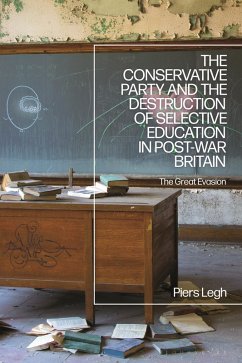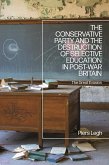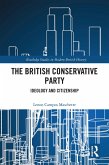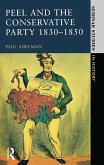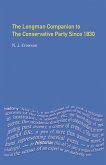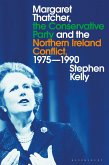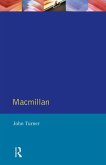The book tells the untold story of the Conservative Party's involvement in terms of stance and policy in the destruction of selective state education from 1945 up to the present day.
Close consideration is paid to their attitudes and prejudices towards education, both in power and in opposition. Legh examines the Party's responses to the pressure for comprehensive schooling and egalitarianism from the Labour Party and the British left. In doing so, Legh defies current historiography to demonstrate that the Party were not passive actors in the advancement of comprehensive schooling.
The lively narrative is moved along by the author's critical examination of the Education Ministers throughout this period: Florence Horsbrugh and David Eccles serving under Churchill and Eden and also Quintin Hogg and Geoffrey Lloyd under Macmillan, as well as Edward Boyle and Margaret Thatcher under Edward Heath.
Legh's detailed research utilises a range of government documents, personal papers, parliamentary debates and newspapers to provide this crucial re-assessment of the Conservative Party and selective education, and in doing so questions over-simplistic generalisations about wholescale support for selective education policy. It reveals instead questioning, compromises and disagreements within the Party and its political and ideological allies. The result is a stimulating revival of existing scholarship which will be of interest to scholars of British education and politics.
Close consideration is paid to their attitudes and prejudices towards education, both in power and in opposition. Legh examines the Party's responses to the pressure for comprehensive schooling and egalitarianism from the Labour Party and the British left. In doing so, Legh defies current historiography to demonstrate that the Party were not passive actors in the advancement of comprehensive schooling.
The lively narrative is moved along by the author's critical examination of the Education Ministers throughout this period: Florence Horsbrugh and David Eccles serving under Churchill and Eden and also Quintin Hogg and Geoffrey Lloyd under Macmillan, as well as Edward Boyle and Margaret Thatcher under Edward Heath.
Legh's detailed research utilises a range of government documents, personal papers, parliamentary debates and newspapers to provide this crucial re-assessment of the Conservative Party and selective education, and in doing so questions over-simplistic generalisations about wholescale support for selective education policy. It reveals instead questioning, compromises and disagreements within the Party and its political and ideological allies. The result is a stimulating revival of existing scholarship which will be of interest to scholars of British education and politics.

